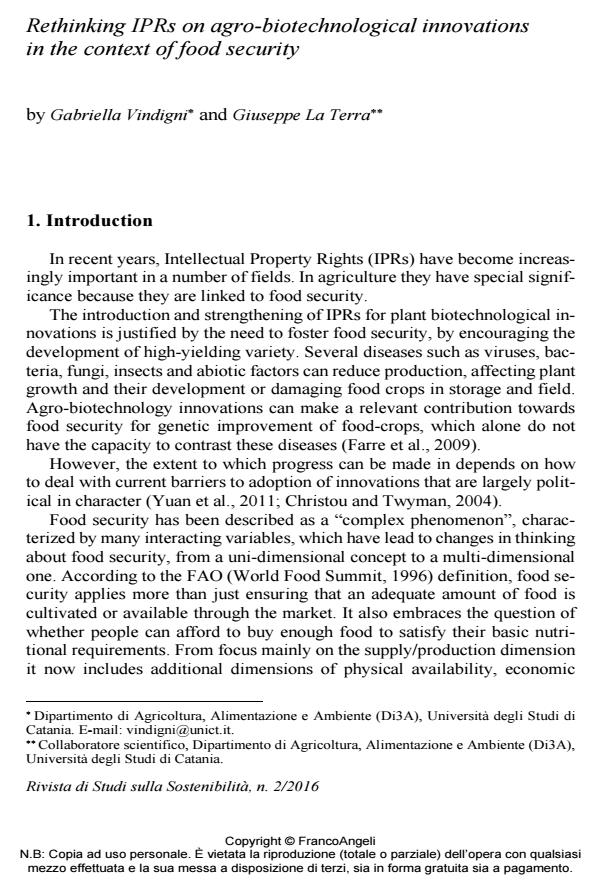Rethinking IPRs on agro-biotechnological innovations in the context of food security
Titolo Rivista RIVISTA DI STUDI SULLA SOSTENIBILITA'
Autori/Curatori Gabriella Vindigni, Giuseppe La Terra
Anno di pubblicazione 2017 Fascicolo 2016/2
Lingua Inglese Numero pagine 0 P. Dimensione file 142 KB
DOI 10.3280/RISS2016-002007
Il DOI è il codice a barre della proprietà intellettuale: per saperne di più
clicca qui
Qui sotto puoi vedere in anteprima la prima pagina di questo articolo.
Se questo articolo ti interessa, lo puoi acquistare (e scaricare in formato pdf) seguendo le facili indicazioni per acquistare il download credit. Acquista Download Credits per scaricare questo Articolo in formato PDF

FrancoAngeli è membro della Publishers International Linking Association, Inc (PILA), associazione indipendente e non profit per facilitare (attraverso i servizi tecnologici implementati da CrossRef.org) l’accesso degli studiosi ai contenuti digitali nelle pubblicazioni professionali e scientifiche.
This paper engages in the debate on how agro-biotechnological innovations can influence food security. IPRs are considerate an important incentive for research initiatives based on genetic resources and they encourage investments in agricultural innovations. However, concerns have risen about the current system of IPR in plant improvement over its impact on food security. IPRs may affect the accessibility and availability of a large number of agricultural products, undermining food security.
Questo lavoro costituisce un contributo al dibattito su come le innovazioni agro-biotecnologiche possono influenzare la sicurezza alimentare. I diritti di proprietà intellettuale sono considerati un importante incentivo per le iniziative di ricerca basate sulle risorse genetiche e incoraggiano gli investimenti sulle innovazioni agricole. Tuttavia, l’impatto sulla sicurezza alimentare dell’attuale sistema dei diritti di proprietà intellettuale, riguardante il miglioramento delle piante, desta alcune perplessità. I diritti di proprietà intellettuale possono condizionare l’accessibilità e la disponibilità di un ampio numero di prodotti agricoli, ledendo la sicurezza alimentare.
Parole chiave:Sicurezza alimentare, agro-biotecnologia, accesso al cibo, diritti di proprietà intellettuale, diritto del costitutore, privilegio dell’agricoltore.
Gabriella Vindigni, Giuseppe La Terra, Rethinking IPRs on agro-biotechnological innovations in the context of food security in "RIVISTA DI STUDI SULLA SOSTENIBILITA'" 2/2016, pp , DOI: 10.3280/RISS2016-002007